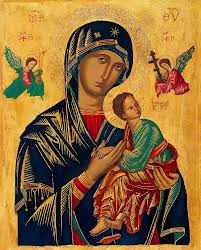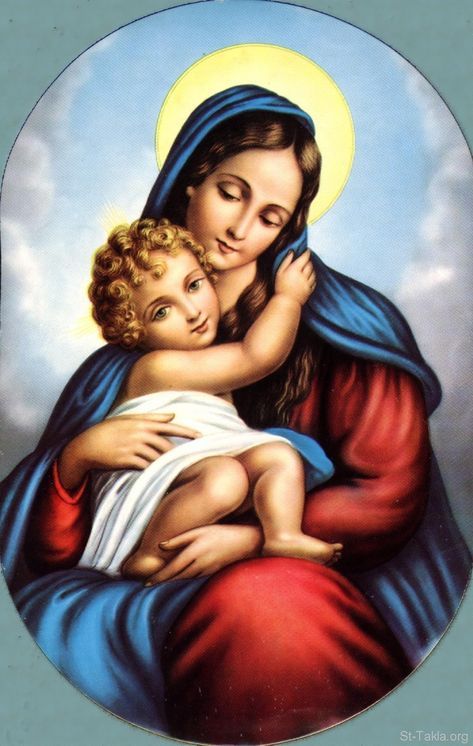The Theotokos and the Soteriological Framework: A Marian Christological Analysis
This essay explores the pivotal role of the Virgin Mary, or Theotokos ("God-bearer"), within the overarching framework of Christian soteriology—the study of salvation. We will analyze key events in her life, employing theological concepts and principles to illuminate her significance in the divine plan of redemption. Key terms such as Immaculate Conception (the belief that Mary was conceived without original sin), perpetual virginity, and soteriology itself will be defined and applied within this context. This analysis will further examine her role as intercessor and its implications for faith and practice.
The Annunciation and the Incarnation: The Foundation of Salvation
The Annunciation (Luke 1:26-38), the pivotal moment when the Archangel Gabriel announces Mary's conception of Jesus through the Holy Spirit, marks the initiation of the soteriological process. This event, understood within the framework of divine election, highlights God's sovereign choice and Mary's willing obedience. This act of divine agency initiates the Incarnation, the central tenet of Christian theology, where the divine nature of God takes on human form in the person of Jesus Christ. This event directly underscores the importance of Mary’s role in God’s plan, as the conduit for the very incarnation of God in human form, the very foundation of salvation.
The Immaculate Conception: Preparing the Vessel
The doctrine of the Immaculate Conception (CCC 491-492) asserts that Mary was conceived without original sin. This belief, though distinct from the Incarnation, is seen as essential to her suitability as the Mother of God. It posits that Mary, free from the inherent human corruption of sin, could serve as the appropriate vessel for the divine seed. This preparedness highlights a preordained role within a larger divine plan of salvation, showing the meticulous process of salvation itself.
Mary, Theotokos: The Mother of God and Mediator
The title "Theotokos," signifying "God-bearer," underscores Mary's unique status. By giving birth to Jesus, the divine Son, Mary becomes intimately involved in the redemptive process. This doesn't diminish Christ's divinity but rather highlights Mary's indispensable role in the Incarnation. Furthermore, her role can be understood through the lens of mediation, as she facilitated the divine-human encounter, bridging the gap between God and humanity.
Perpetual Virginity: A Symbol of Consecration
The doctrine of Mary's perpetual virginity (CCC 499) emphasizes her complete dedication to God. This belief, while debated throughout history, is viewed by many as symbolic of her unwavering devotion and her total surrender to God's will. It underscores the purity and holiness attributed to her, reflecting a total consecration to divine purpose within the framework of salvation.
Mary's Life as a Narrative of Faith: Obedience, Humility, and Intercession
Events such as the Visitation (Luke 1:39-45), the Magnificat (Luke 1:46-55), the Nativity (Luke 2:1-20), the Presentation in the Temple (Luke 2:22-35), the Flight into Egypt (Matthew 2:13-15), the Finding in the Temple (Luke 2:41-52), and the Wedding at Cana (John 2:1-12) showcase Mary's unwavering faith, humility, and obedience to God's will. These acts, viewed through a soteriological lens, highlight not just a passive role but an active participation in the unfolding plan of salvation. Her intercession at Cana demonstrates her role as a powerful advocate for humanity.
The Crucifixion and the New Covenant: Mary’s Role in the Passion
Mary's presence at the foot of the cross (John 19:25-27) demonstrates her profound empathy and unwavering love, showcasing her steadfast faith even in the face of immense suffering. The entrustment of Mary to John, viewed through the lens of covenant theology, establishes a new familial bond encompassing all believers, symbolically representing the new covenant established through Christ's sacrifice. This highlights her compassion and her willingness to share in the suffering of Christ and thus the suffering of humanity.
The Assumption and Coronation: Eschatological Significance
The Assumption (CCC 966), the belief in Mary's bodily ascension into heaven, and her Coronation as Queen of Heaven and Earth (CCC 966) are eschatological events. These beliefs highlight the ultimate triumph of good over evil and signify the future hope and glory awaiting believers. These events serve as a promise and symbol of the ultimate fulfillment of God’s plan for those who have faith.
Marian Piety and the Rosary: Practices of Faith
The Rosary, a devotional practice centered on Mary, serves as a powerful means of contemplation and prayer, helping to focus on Christ's life and Mary's role within it. This underscores the practical application of Marian devotion, demonstrating how theological concepts translate into spiritual practice and community engagement.
Conclusions and Recommendations
In conclusion, analyzing Mary's role through a rigorous theological lens reveals her indispensable contribution to the soteriological narrative. Her unwavering faith, obedience, and humility serve as exemplary models for believers. Further research could explore the diverse perspectives on Marian doctrines across different Christian denominations, analyzing the theological and cultural factors shaping these interpretations. Understanding the historical and theological context surrounding Marian doctrines is crucial for fostering interfaith dialogue and promoting a deeper understanding of Christian theology. The impact of properly understanding Mary's role in salvation includes increased faith in God's plan, a deeper appreciation for the role of women in religious faith, and a richer devotional life for those who follow this tradition. The applicability of this analysis extends beyond academic circles, impacting liturgical practices, devotional life, and theological education.
Reader Pool: What are your thoughts on the efficacy of utilizing various theological models and frameworks in interpreting the role of Mary within the broader context of Christian soteriology, and how might such interpretations influence contemporary Christian faith and practice?






No comments yet. Be the first to share your thoughts!